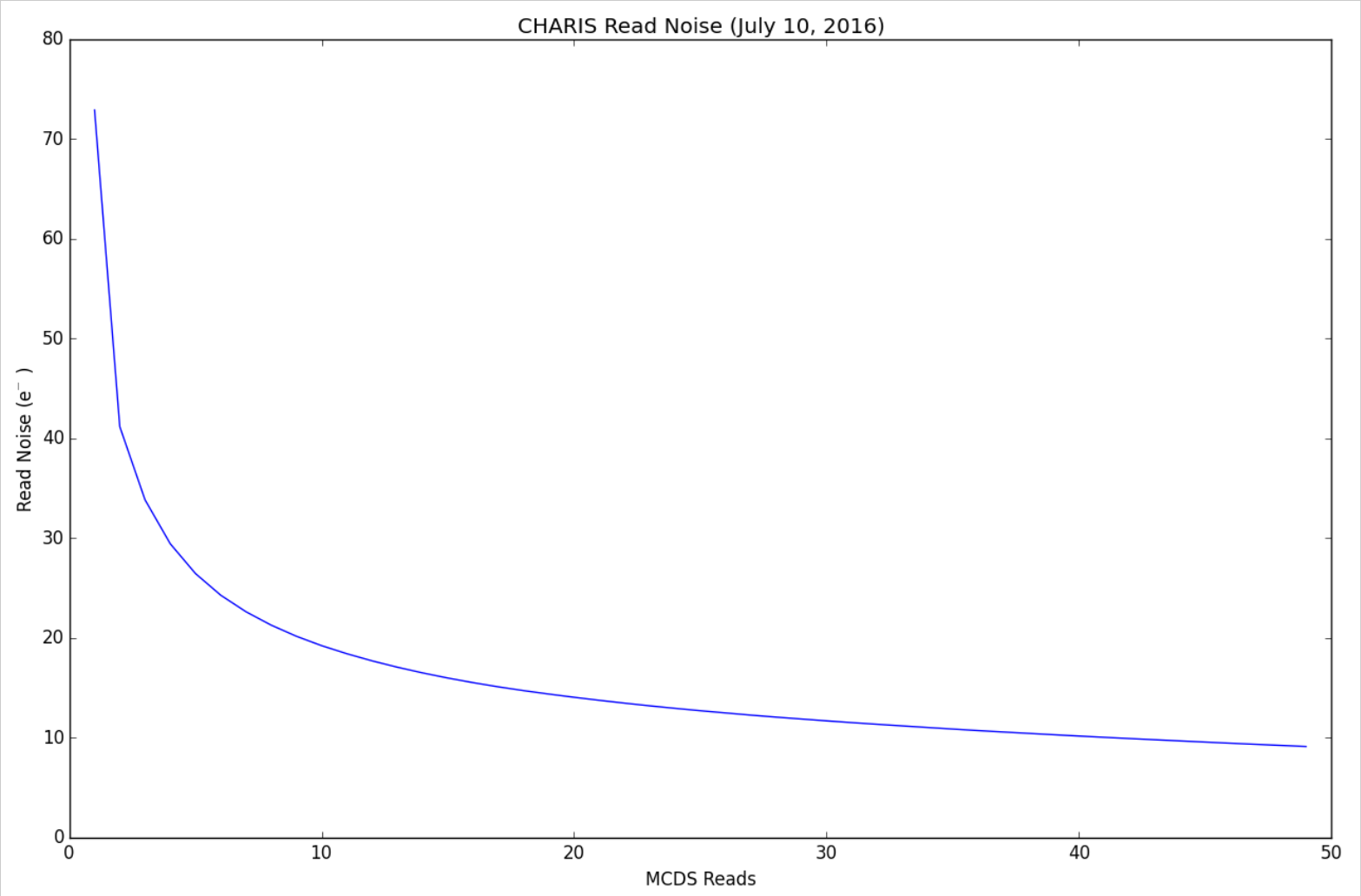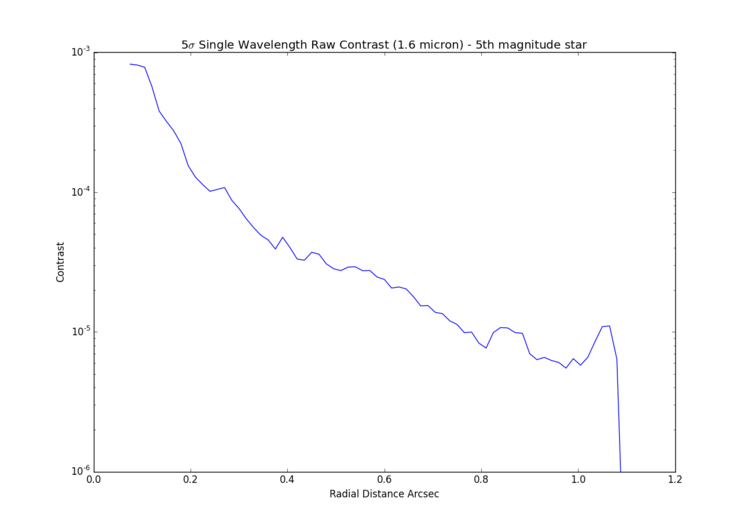CHARIS Capabilities
A note on sensitivity and contrast. Both are strongly dependent on the performance of SCExAO and AO3k.
Targets with an H-band magnitude brighter than 1 can only be observed with the internal CHARIS ND3 filter in-beam, which restricts the user to broadband mode.
The current instrument capabilties are below.
Filters
| Filters | ||
|---|---|---|
| Band | 50% Transmission Range (nm) | In-Band Filter Transmission |
|
J |
1176-1328 | >80% |
| H | 1490-1783 | >90% |
| K | 2019-2375 | >90% |
| Broadband | 1154-2387 | >93% |
| Cold ND3 | 1165-2365 | OD 3.258 |
Dispersion Modes
| Dispersion modes | |||
|---|---|---|---|
| Band | Avg. Spectral Resolution (2x2 pixels) | # Output Channels | CHARIS Internal Throughput |
| J | R = 75.2 | 15 | >40% |
| H | R = 65.2 | 20 | >40% |
| K | R = 77.1 | 17 | >40% |
| Broadband (or ND) | R = 18.4 | 22 | >53% |
| Undispersed | N.A. | 1 | >64% |
Basic Parameters
| Basic parameters | ||
|---|---|---|
| FOV | 2.07"x2.07" | Verified August 10, 2018 |
| Plate Scale | 16.2 mas/lenslet | Verified August 10, 2018 |
| Contrast | See SCExAO | One 5-sigma curve from commissioning provided on this page |
| Recommended Satellite Spot Contrast | 1x10-1 - 1x10-3 | Tunable, Being Calibrated |
| Satellite Spot Location | 15 λ/D (~0.7" at 1550nm) | Max Frequency in FOV at 2370nm |
A curve describing noise in MCDS frames is gshown here. The noise is higher than we expect to have, and there are ongoing efforts by the CHARIS team to isolate the source of this noise to get improved read noise performance.

Read noise versus MCDS reads.
The first estimate of the 5-sigma contrast level provided by SCExAO around a star with Hmag=5.3 from first-light measurements is given below.

Contrast level estimate from August 2016.
File ./030openuse.web/030charis.web/100chariscapabilities.web/content.html last modified 04/08/2025 09:19:06 HST
